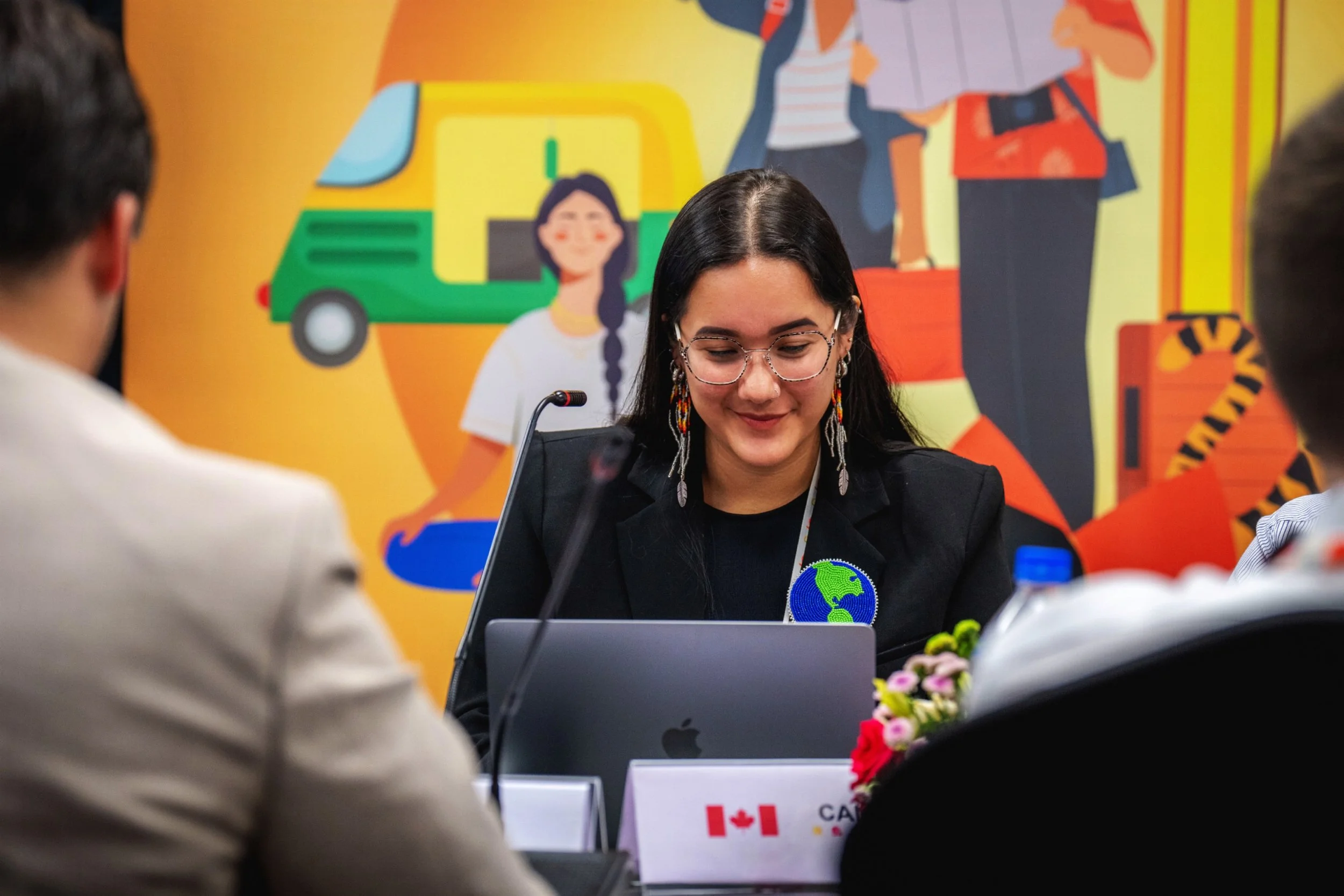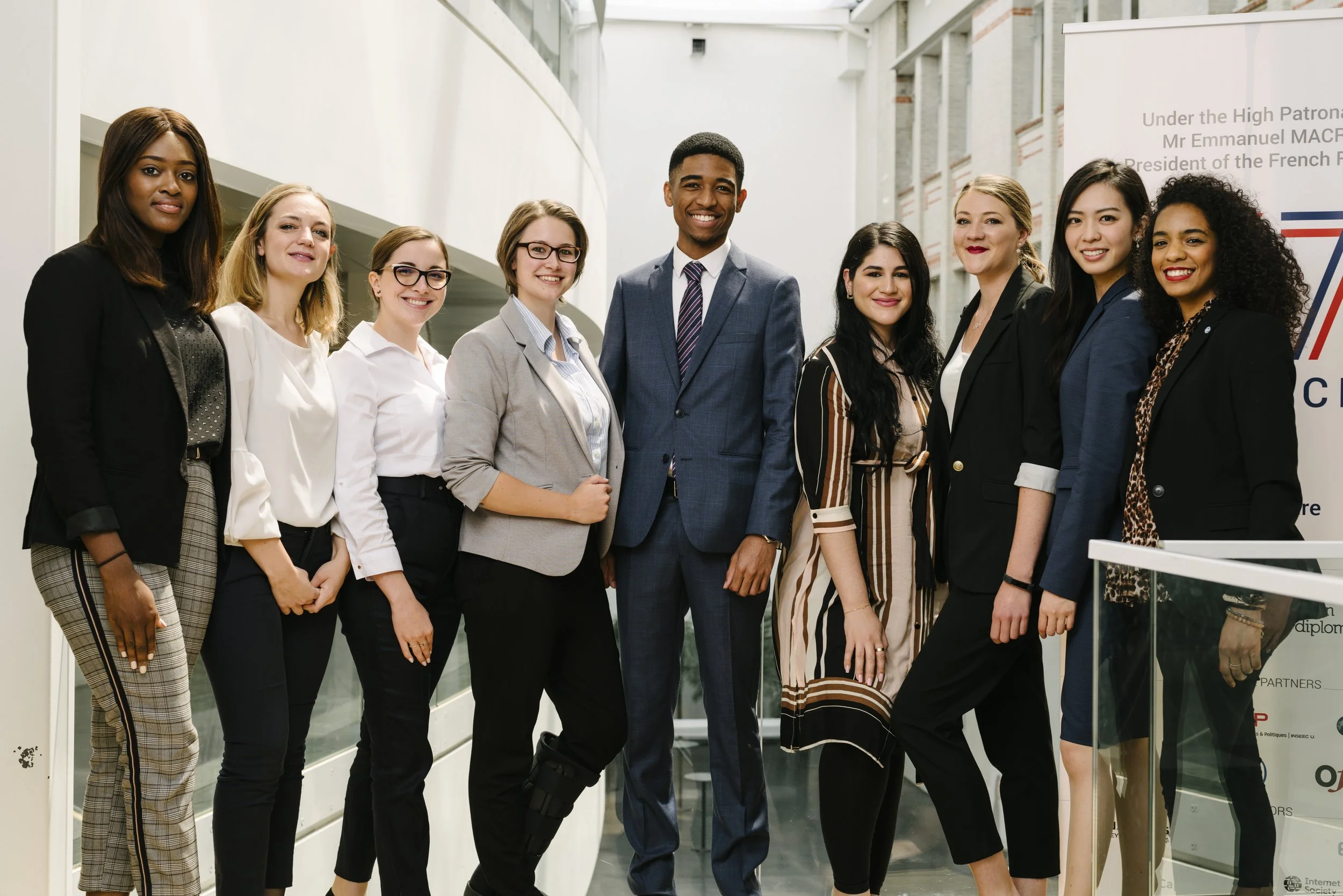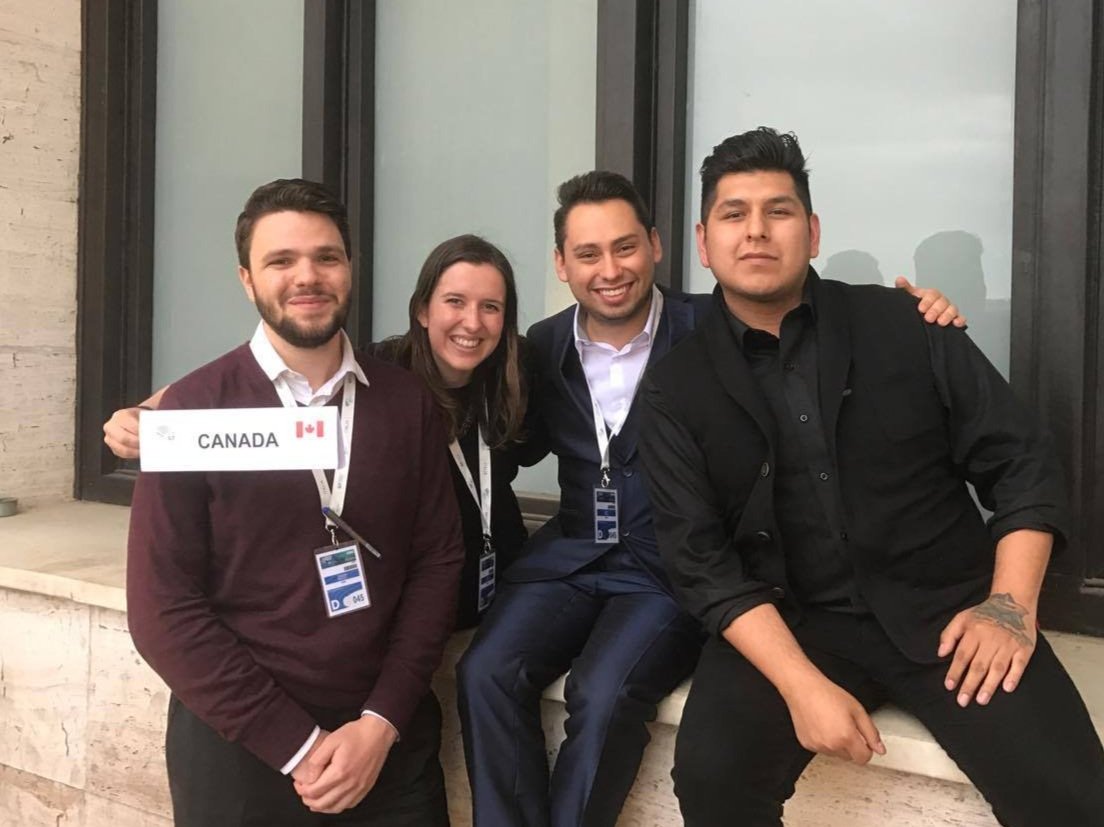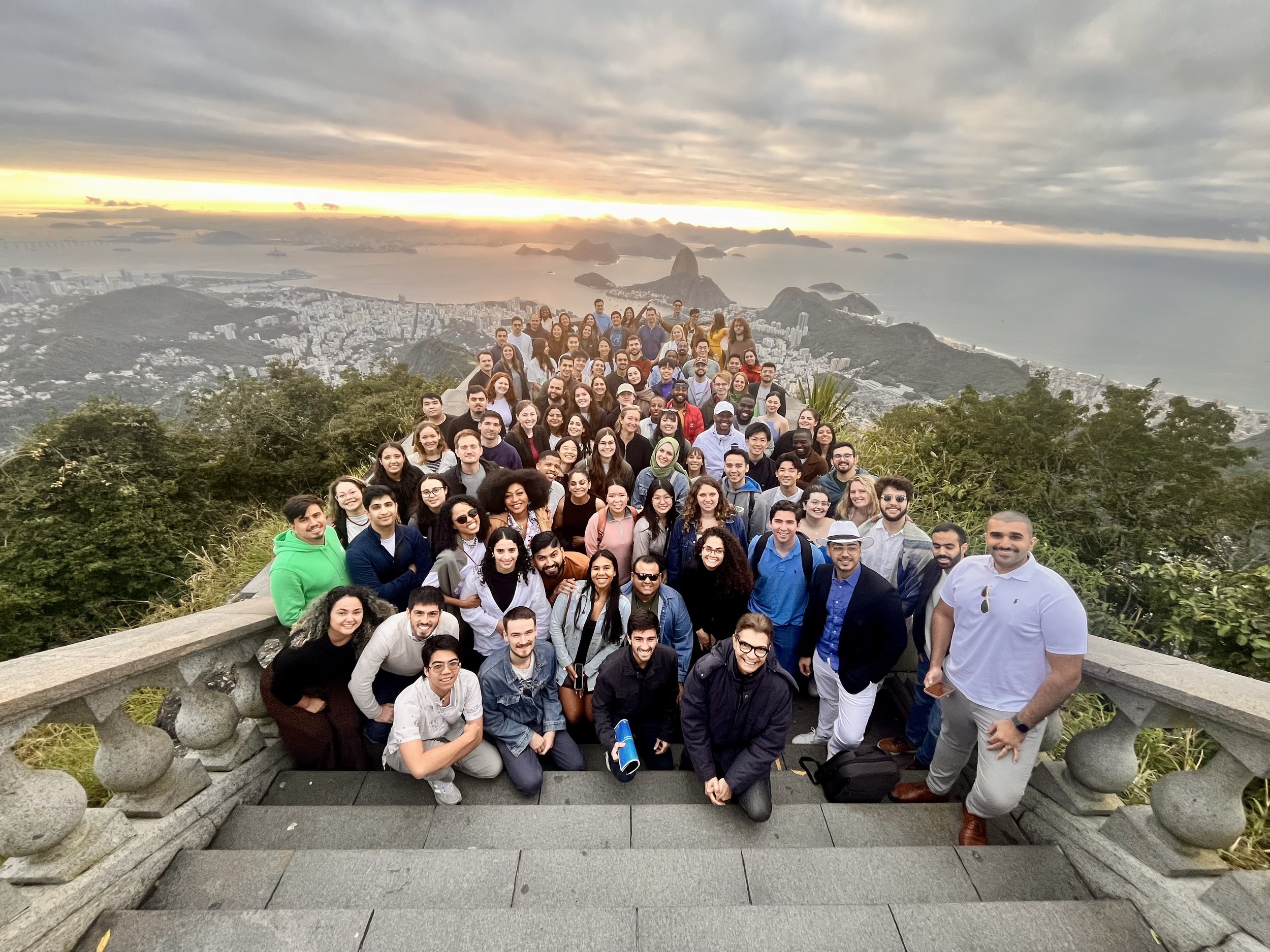
YDC Delegations
What is a YDC Delegation?
Each year, YDC offers several opportunities for youth to represent young Canadians abroad at international meetings and speak to decision makers on behalf of Canadian youth. Our delegations meet leaders, experts, and activists from around the world, and develop skills that will serve them in Canada and abroad.
No two YDC delegations are exactly alike. YDC offers three distinctive delegate experiences, with varying levels of on-the-ground engagement and different expectations for delegates in the lead-up to the event. Regardless of the delegation type, YDC provides training to delegates in advance of their engagement and pairs them with Program Coordinators who supports them throughout their journey with YDC.
In all events YDC participates in, delegates will be teamed with a group of young Canadian leaders, learn about pressing policy issues, and meet with high-level officials, civil society organizations, and experts. Our goal is to support all delegates to break down barriers in decision making, build up your networks, and develop skills that will serve you after your time as a delegate.
We have three types of delegations…
-
ADVOCATE AND IMPACT
Advocacy Delegations offer unparalleled opportunities to represent Canadian and youth interests on the world stage. The core activity is to negotiate with other Y7 and Y20 cohorts to draft policy recommendations that are presented annually to G7 and G20 leaders.
-
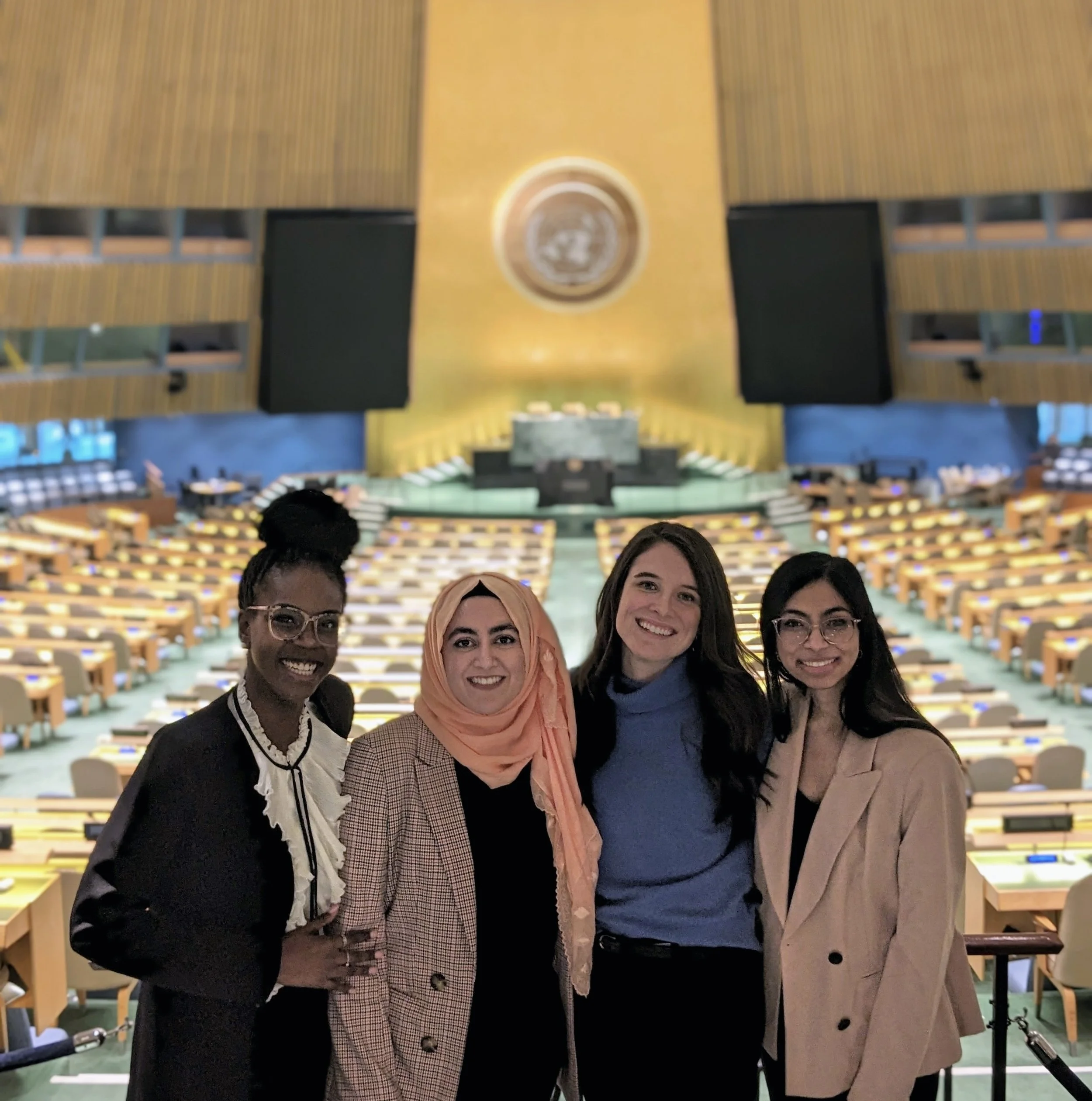
ENGAGE AND CONNECT
ECOSOC Delegations attend United Nations conferences at UN Headquarters in New York. ECOSOC delegations have the opportunity to attend official meetings as well as side events organized by member states and civil society. Delegates have the possibility to submit written statements, deliver oral interventions and organize their own parallel events in partnership with other civil society actors.
United Nations Commission on the Status of Women (CSW)
United Nations High Level Political Forum on Sustainable Development (HLPF)
-

LISTEN AND LEARN
Observer Delegations attend international events as youth observers to learn from high-level discussions. The core activity of observer delegations is for delegates to listen to and interact with experts from around the world, to gain deeper knowledge in a given field.
World Bank Group and International Monetary Fund (IMF) Annual Meetings
What to Expect
-
Do you want to gain concrete experience in multilateral negotiations and present recommendations directly to world leaders? If yes, an advocacy delegation might be for you!
Through our advocacy delegations, YDC selects and coordinates the Canadian delegations to the Y20 and Y7 Summits, which serve as the official forum for youth of G20 and G7 countries.
Advocacy delegations offer unparalleled opportunities to represent Canadian and youth interests on the world stage. The core activity is to negotiate with other Y7 and Y20 cohorts to draft policy recommendations that are presented annually to G7 and G20 leaders.
Role of delegates
Delegates conduct research, meet with experts, and hold digital consultations with Canadian youth in order to inform their policy recommendations. Delegates further advocate domestically for the recommendations included in the final communique that are most relevant to Canadian youth.
Time commitment
High time commitment (3-10 hours per week)
Throughout their commitment, delegates will be expected to devote between 3 and 10 hours per week to the delegation, plus fully participating in all mandatory elements of the summit.
Busy week (7-10 hours)
Weekly delegation meeting (1 hour)
Pre-summit online negotiations (2 hours)
Stakeholder meetings (1-2 hours)
Youth focus group and/or consultations (1 hour)
Individual research and recommendation drafting (1-2 hours)
Internal/external correspondence and communications (1-2 hours)
Slow week (3 hours)
Weekly delegation meeting (1 hour)
Individual research and recommendation drafting (1 hour)
Internal/external correspondence and communications (1 hour)
-
Are you keen to connect with passionate individuals and organizations engaging on issues of global importance around the margins of UN events? If this sounds interesting to you, consider an ECOSOC Delegation!
ECOSOC delegations attend high-level United Nations events at UN Headquarters in New York City by virtue of YDC’s consultative status with the Economic and Social Council (ECOSOC). These include the Commission on the Status of Women (CSW) and the High Level Political Forum on Sustainable Development (HLPF).
Role of delegates
ECOSOC delegations have the opportunity to attend official meetings as well as side events organized by member states and civil society. Delegates can submit written statements, deliver oral interventions (if selected) and organize their own parallel events in partnership with other civil society actors.
ECOSOC delegations are a great way to connect with passionate change makers and get up close and personal with the UN system!
Time commitment
Medium time commitment (2-5 hours per week)
Throughout their commitment, delegates will be expected to devote between 2 and 5 hours per week to the delegation, plus fully participating in the summit for the duration of the delegation’s time there.
Busy week (4-6 hours)
Weekly delegation meeting (1 hour)
Stakeholder meetings (1-2 hours)
Drafting oral/written statement or planning events (1 hour)
Individual research and internal/external correspondence (1 hour)
Slow week (2 hours)
Weekly delegation meeting (1 hour)
Individual research and internal/external correspondence (1 hour)
-
Are you eager to delve deeper into topics such as international trade, development finance, and sustainable growth? Do you want opportunities to ask big questions to world leaders and engage in meaningful conversations? Observer delegations offer these experiences and much more!
Observer delegations attend international events as youth observers to learn from high-level discussions. YDC sends observer delegations to the Annual Meetings of the International Monetary Fund (IMF) and World Bank Group (WBG), and the World Trade Organization (WTO) Public Forum in Geneva.
Role of delegates
The core activity of observer delegations is for delegates to listen to and interact with experts from around the world, to gain deeper knowledge in a given field. With participants from many sectors, including NGOs, media, government, academia, and business, our delegates break down barriers and strengthen their networks. Observer delegations provide a fantastic networking experience.
Delegates are expected to attend Summit sessions and participate in meetings with stakeholders on the ground during the week of the Summit. These delegations represent an excellent learning opportunity for anyone who is interested in international trade and finance, as well as comparative public policy.
Time commitment
Low time commitment (1-3 hours per week)
Throughout their commitment, delegates will be expected to devote between 3 and 5 hours per week to the delegation, plus fully attending the full event for its whole duration.
Busy week (2.5-3.5 hours)
Weekly delegation meeting (1 hour)
Stakeholder meetings (1-2 hours)
Internal/external correspondence (30 minutes)
Slow week (1 hour)
Weekly delegation meeting (1 hour)
Click a delegation type to find out more about the summits and conferences offered, the role of the delegation, and time commitment.
Who Are We Looking For?
We are looking for youth between the ages of 18-30 who want to represent youth in Canada on the world stage. Applicants must be Canadian citizens or permanent residents of Canada (please note that age and citizenship eligibility may vary for individual delegations based on host organization/country requirements).
Key skills and previous experience:
Keen interest in their communities, public engagement, youth advocacy, and international affairs
Substantial leadership and teamwork skills
Academic or professional background related to summit theme(s)
Strong written, communication and interpersonal skills
Proven ability to take initiative in researching and connecting with stakeholders and other youth organizations and partners
Delegates must have an excellent command of English. Knowledge of French is an asset for the WTO Public Forum hosted in Geneva, Switzerland.
For more information on the application dates and process, visit our apply page.

